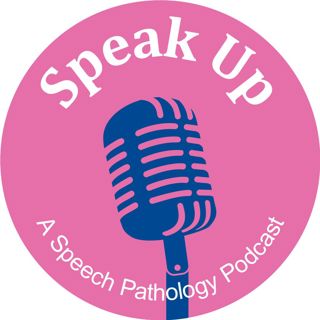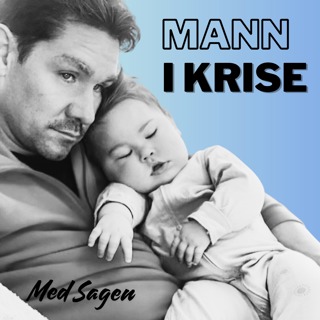
Inpatient Functional Communication Interview (IFCI) - S03 E26
In this week’s episode, Leah Paice from the Vic Branch Professional Education committee speaks with Dr Robyn O’Halloran, Discipline Lead of Speech Pathology at La Trobe University. Robyn chats about her assessment tool for speech pathologists and other healthcare professionals working in acute and rehabilitation hospitals – the Inpatient Functional Communication Interview (IFCI). Speech Pathology Australia acknowledges the Traditional Custodians of lands, seas and waters throughout Australia, and pay respect to Elders past, present and future. We recognise that the health and social and emotional wellbeing of Aboriginal and Torres Strait Islander peoples are grounded in continued connection to culture, country, language and community. Disclaimer: © (2024) The Speech Pathology Association of Australia Limited. All rights reserved. Important Notice, Please read: The views expressed in this presentation and reproduced in these materials are not necessarily the views of, or endorsed by, The Speech Pathology Association of Australia Limited (“the Association”). The Association makes no warranty or representation in relation to the content, currency or accuracy of any of the materials comprised in this recording. The Association expressly disclaims any and all liability (including liability for negligence) in respect of use of these materials and the information contained within them. The Association recommends you seek independent professional advice prior to making any decision involving matters outlined in this recording including in any of the materials referred to or otherwise incorporated into this recording. Except as otherwise stated, copyright and all other intellectual property rights comprised in the presentation and these materials, remain the exclusive property of the Association. Except with the Association’s prior written approval you must not, in whole or part, reproduce, modify, adapt, distribute, publish or electronically communicate (including by online means) this recording or any of these materials.
21 Jul 202125min

Demystifying situational / selective mutism - S03 E25
In this week’s episode, CYMHS speech pathologist, Kristen Potts, speaks with Dr Elizabeth Woodcock, founder, director and principal Clinical Psychologist from the Selective Mutism Clinic in Sydney. Elizabeth explores the assessment and intervention approaches used when working with a child with Selective Mutism, as well as how speech pathologists and psychologists can collaborate in working with these children. This podcast contains terminology and approaches that may not align with some views relating to Neurodiversity Affirming Practices. The title of this episode has been updated to acknowledge the lived experiences of people with situational mutism and their preferences. Look out for a new Speak Up Podcast episode in 2025 relating to Neurodiversity Affirming supports for situational mutism. Speech Pathology Australia acknowledges the Traditional Custodians of lands, seas and waters throughout Australia, and pay respect to Elders past, present and future. We recognise that the health and social and emotional wellbeing of Aboriginal and Torres Strait Islander peoples are grounded in continued connection to culture, country, language and community. Disclaimer: © (2024) The Speech Pathology Association of Australia Limited. All rights reserved. Important Notice, Please read: The views expressed in this presentation and reproduced in these materials are not necessarily the views of, or endorsed by, The Speech Pathology Association of Australia Limited (“the Association”). The Association makes no warranty or representation in relation to the content, currency or accuracy of any of the materials comprised in this recording. The Association expressly disclaims any and all liability (including liability for negligence) in respect of use of these materials and the information contained within them. The Association recommends you seek independent professional advice prior to making any decision involving matters outlined in this recording including in any of the materials referred to or otherwise incorporated into this recording. Except as otherwise stated, copyright and all other intellectual property rights comprised in the presentation and these materials, remain the exclusive property of the Association. Except with the Association’s prior written approval you must not, in whole or part, reproduce, modify, adapt, distribute, publish or electronically communicate (including by online means) this recording or any of these materials.
14 Jul 202130min

Older Persons Advocacy Network – a conversation with Craig Gear - S03 E24
In this week’s episode Speech Pathology Australia CEO, Gail Mulcair speaks with CEO of the Older Persons Advocacy Network, Craig Gear. Gail and Craig explore the ways speech pathologists can advocate to support the human rights of older Australians with communication and swallowing difficulties, and discuss the views of both OPAN and SPA on the Government’s response to the Aged Care Royal Commission. Speech Pathology Australia acknowledges the Traditional Custodians of lands, seas and waters throughout Australia, and pay respect to Elders past, present and future. We recognise that the health and social and emotional wellbeing of Aboriginal and Torres Strait Islander peoples are grounded in continued connection to culture, country, language and community. Disclaimer: © (2024) The Speech Pathology Association of Australia Limited. All rights reserved. Important Notice, Please read: The views expressed in this presentation and reproduced in these materials are not necessarily the views of, or endorsed by, The Speech Pathology Association of Australia Limited (“the Association”). The Association makes no warranty or representation in relation to the content, currency or accuracy of any of the materials comprised in this recording. The Association expressly disclaims any and all liability (including liability for negligence) in respect of use of these materials and the information contained within them. The Association recommends you seek independent professional advice prior to making any decision involving matters outlined in this recording including in any of the materials referred to or otherwise incorporated into this recording. Except as otherwise stated, copyright and all other intellectual property rights comprised in the presentation and these materials, remain the exclusive property of the Association. Except with the Association’s prior written approval you must not, in whole or part, reproduce, modify, adapt, distribute, publish or electronically communicate (including by online means) this recording or any of these materials.
7 Jul 202128min

Ethics FAQs: Advertising, professional communication and ceasing services - S03 E23
In this week’s episode, Speech Pathology Australia's ethics team – Trish Johnson, Nadia Marussinszky and Kelly Williams – discuss case scenarios involving common ethical issues related to advertising, professional communication and ceasing services. Speech Pathology Australia acknowledges the Traditional Custodians of lands, seas and waters throughout Australia, and pay respect to Elders past, present and future. We recognise that the health and social and emotional wellbeing of Aboriginal and Torres Strait Islander peoples are grounded in continued connection to culture, country, language and community. Disclaimer: © (2024) The Speech Pathology Association of Australia Limited. All rights reserved. Important Notice, Please read: The views expressed in this presentation and reproduced in these materials are not necessarily the views of, or endorsed by, The Speech Pathology Association of Australia Limited (“the Association”). The Association makes no warranty or representation in relation to the content, currency or accuracy of any of the materials comprised in this recording. The Association expressly disclaims any and all liability (including liability for negligence) in respect of use of these materials and the information contained within them. The Association recommends you seek independent professional advice prior to making any decision involving matters outlined in this recording including in any of the materials referred to or otherwise incorporated into this recording. Except as otherwise stated, copyright and all other intellectual property rights comprised in the presentation and these materials, remain the exclusive property of the Association. Except with the Association’s prior written approval you must not, in whole or part, reproduce, modify, adapt, distribute, publish or electronically communicate (including by online means) this recording or any of these materials.
30 Jun 202118min

Working with people who are Deaf-blind - S03 E22
In this week’s episode, Speech Pathology Australia's professional practice advisor, Erin West, chats to Dr Meredith Prain from Able Australia and Senses Australia. Meredith speaks about what speech pathologists need to know when working with people who are Deaf-blind. Please email Anneke on the following email address to obtain the reference list mentioned in this episode: speakuppodcast@speechpathologyaustralia.org.au Speech Pathology Australia acknowledges the Traditional Custodians of lands, seas and waters throughout Australia, and pay respect to Elders past, present and future. We recognise that the health and social and emotional wellbeing of Aboriginal and Torres Strait Islander peoples are grounded in continued connection to culture, country, language and community. Disclaimer: © (2024) The Speech Pathology Association of Australia Limited. All rights reserved. Important Notice, Please read: The views expressed in this presentation and reproduced in these materials are not necessarily the views of, or endorsed by, The Speech Pathology Association of Australia Limited (“the Association”). The Association makes no warranty or representation in relation to the content, currency or accuracy of any of the materials comprised in this recording. The Association expressly disclaims any and all liability (including liability for negligence) in respect of use of these materials and the information contained within them. The Association recommends you seek independent professional advice prior to making any decision involving matters outlined in this recording including in any of the materials referred to or otherwise incorporated into this recording. Except as otherwise stated, copyright and all other intellectual property rights comprised in the presentation and these materials, remain the exclusive property of the Association. Except with the Association’s prior written approval you must not, in whole or part, reproduce, modify, adapt, distribute, publish or electronically communicate (including by online means) this recording or any of these materials.
23 Jun 202122min

Q&A with a paediatric occupational therapist - S03 E21
In this week’s episode, Speech Pathology Australia's Anneke Flinn chats with experienced paediatric occupational therapist, Charlinda Parsons. Charlinda speaks about how paediatric speech pathologists can incidentally consider regulation, sensory and fine motor issues in their speech pathology sessions. Speech Pathology Australia acknowledges the Traditional Custodians of lands, seas and waters throughout Australia, and pay respect to Elders past, present and future. We recognise that the health and social and emotional wellbeing of Aboriginal and Torres Strait Islander peoples are grounded in continued connection to culture, country, language and community.
16 Jun 202134min

What it is like to use AAC – from someone who uses it - S03 E20
In this week’s episode, Cathy Olsson chats to Lisa, a stroke survivor, about her experiences as a user of augmentative and alternative communication (AAC). Speech Pathology Australia acknowledges the Traditional Custodians of lands, seas and waters throughout Australia, and pay respect to Elders past, present and future. We recognise that the health and social and emotional wellbeing of Aboriginal and Torres Strait Islander peoples are grounded in continued connection to culture, country, language and community.
9 Jun 20218min

Allied health assistants in speech pathology - S03 E19
In this week’s episode, Speech Pathology Australia's Anneke Flinn speaks to proud Pitjantjatjara and Yankunytjatjara woman, Lorraine Randall. Lorraine chats about her journey to becoming an allied health assistant and her work in the speech pathology department at the Royal Darwin Hospital. Speech Pathology Australia acknowledges the Traditional Custodians of lands, seas and waters throughout Australia, and pay respect to Elders past, present and future. We recognise that the health and social and emotional wellbeing of Aboriginal and Torres Strait Islander peoples are grounded in continued connection to culture, country, language and community.
2 Jun 202113min





















